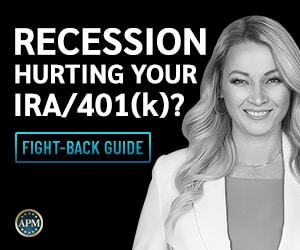Comparing discretionary and non-discretionary accounts
People invest their money in stocks, bonds, forex, and other securities to maximize their investment returns. Though the effort and time required to make money from investments is less than the time required to make money providing a service or doing a job, the investor still has to spend some time to manage the investment, choosing the right investment option to maximize the returns. For most securities, the investor has to use a broker’s services for trading since the broker will place orders or sell on behalf of the investor. The brokers offer discretionary and non-discretion investor accounts. The differences between these accounts are discussed for investors who wish to compare Discretionary vs. non-discretionary accounts before deciding.
Discretionary Account
An investment account in which the broker is authorized to purchase and sell securities without explicitly taking the client’s permission for every transaction is called discretionary. The investor, also called the client, should sign a discretionary disclosure or statement, in which the investor gives the broker permission to buy and sell securities. The discretionary account may also be called a managed account. The brokerages often specify that the client should invest a minimum amount, typically $100,000, to open a discretionary account. There are different types of accounts available, depending on the initial investment amount. The investor also has to pay fees for the assets which are managed by the brokerage.
Non-discretionary account
A non-discretionary account is an account where the client always decides whether or not to conduct a trade. A non-discretionary investment account is an investment account where the brokerage will only purchase and sell securities based on the investor’s orders. Though the brokerage may provide information, advice, and tips to the investor, the investor is ultimately responsible for deciding whether he wishes to purchase or sell the security. The brokerage is mainly responsible for getting the best price for the investor when purchasing or selling securities. The minimum amount of investment for the non-discretionary account is also usually lower.
Understanding Discretionary Account
Usually, for a discretionary account, the terms of the account are specified at the time of opening the account based on investment goals and investor risk tolerance. The brokerage will review the investor’s requirements, and the agreement will incorporate these requirements and the permissions the broker requires for executing the trades. The client may specify the criteria for trading with the discretionary account. For example, the investor may specify that he should maintain a specified ratio of stocks to bonds based on his risk appetite.
However, the broker may be free to invest in any bond or stock within the specified asset class. The investor may also specify that his money is only invested in reputed companies’ stock (blue-chip stocks) for safety. The broker managing the discretionary account has to ensure that he follows his client’s instructions and ensures that he complies with the constraints specified by the client. If the broker does not follow the client’s instructions and is making a loss, the client may initiate legal action against the broker. To open a discretionary account, the investor should find a brokerage offering the service.
In the last decade, investment management has been automated to a great extent, using algorithms to create a new category of discretionary accounts called robot-advisers. These accounts do not require human intervention for management and follow modern portfolio theory, yet the investment can be customized by the investor issuing instructions on choosing the securities. Since these accounts require very little human intervention, the robot-advised investment accounts may require low minimum balances in the account of $1-$5 and low or no fees.
Advantages and Disadvantages of Discretionary Accounts
The discretionary account’s major advantage is that they are very convenient since the broker does not have to waste time contacting the client before executing the trade. Most brokers handle a large number of clients and are well informed about the profitable investment opportunities available. So if the client authorizes the broker, they can invest quickly and make a profit. The broker can also get better pricing. In contrast, each investor may not have the time to research or get information on all the profitable investment opportunities available in the market, so that they may lose out on opportunities.
However, there are some risks involved in having discretionary accounts since a manager is spending time managing the trades and risks. The broker will usually charge a quarterly or annual fee for the service, affecting the overall returns for the investor. The fee will vary depending upon the amount invested. Also, there is no guarantee that the discretionary account will outperform the market despite paying higher fees. According to the study conducted by Asset risk consultants in 2015, it was observed that 50% of the discretionary accounts had underperformed the stock markets.
Advantages and Disadvantages of Non-Discretionary Accounts
Some investors prefer to manage their investments themselves, so in these cases, a non-discretionary account is better for them. The minimum investment and fees for this account are also lower. These accounts are ideal for investors who are already monitoring the financial markets and are well informed. However, a non-discretionary account’s main disadvantage is that the investor will have to spend his time researching the investment opportunities and managing his account. He may also not get good prices since he is acting alone and communicating with his broker.
Conclusion
Depending on their risk appetite, profile, and other factors, investors can choose between a discretionary or non-discretionary account. Usually, discretionary accounts are preferred by wealthy investors like professionals or celebrities who do not have the time and expertise to manage their investments themselves and are willing to pay the higher fees. Non-discretionary accounts are popular with smaller investors who have the time to manage their investment, research the investment options available before making a decision, and do not wish to pay the brokerage fees for managing their money.
























